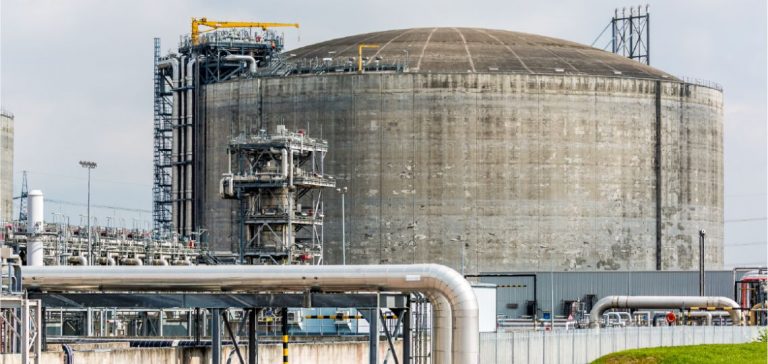MiQ, the global leader in emissions certification, has officially certified the Grain LNG terminal in the United Kingdom, marking a significant step in emission transparency related to liquefied natural gas (LNG). This certification, announced at the BloombergNEF London Summit, positions Grain LNG as the largest LNG terminal in Europe.
This initiative allows American producers to meet the growing demand from European and British buyers for more transparent energy solutions in terms of emissions. By certifying their facilities, American exporters can now offer LNG products with precise traceability of associated emissions, thereby meeting the strict environmental requirements of the European market.
Enhancing Emission Transparency
Georges Tijbosch, CEO of MiQ, emphasized the importance of this certification: “The certification of Grain LNG provides natural gas buyers in the United Kingdom and Europe with additional transparency regarding the level of emissions from imported LNG purchases. American exporters can meet the demand for low-emission LNG by having their facilities third-party certified.”
This approach is part of a global trend towards greater environmental responsibility in the energy sector. With increasing pressure to reduce carbon footprints, emissions certification is becoming an essential criterion for market players.
Impact on the European LNG Market
Ben Wilson, President of National Grid Ventures, also commented on this certification: “As a company at the heart of the UK’s energy system, our customers, partners, and consumers all expect the best possible service from us. This new accreditation is a testament to our commitment, proving that the Grain LNG terminal is a highly efficient and market-leading site.”
Grain LNG’s adherence to this certification program positions the terminal as a key player in Europe’s energy transition. It strengthens the trust of consumers and business partners in the terminal’s ability to manage methane emissions, a particularly concerning greenhouse gas.
Simon Culkin, Managing Director of Grain LNG, added: “At a time when emission monitoring is rightly increased and legitimate, we are delighted that Grain LNG is the first port of its kind to receive this accreditation. MiQ’s certification confirms that Grain LNG is not only the largest LNG port in Europe but also world-class, as evidenced by our diverse customers, operational excellence, and now methane management.”
This certification paves the way for other facilities in Europe to follow the same process, with the expectation of seeing the first certified LNG cargoes depart from the United States to Europe by the end of the year. This could potentially transform the LNG market landscape by reinforcing environmental standards and promoting more sustainable practices.
Future Perspectives for the LNG Sector
With the increasing demand for sustainable energy solutions, environmental certifications are becoming a strategic asset for companies in the sector. They not only allow compliance with existing regulations but also help differentiate in a competitive market.
MiQ plans to expand its certification program in Europe, anticipating that more LNG terminals will follow Grain LNG’s example. This trend could encourage wider adoption of environmentally friendly practices, thereby contributing to the overall reduction of greenhouse gas emissions in the energy sector.
Furthermore, this certification could attract new investors and partners looking to associate with entities that demonstrate a clear commitment to sustainability and environmental responsibility. It could also influence European energy policies in favor of more transparent and environmentally responsible solutions.






















